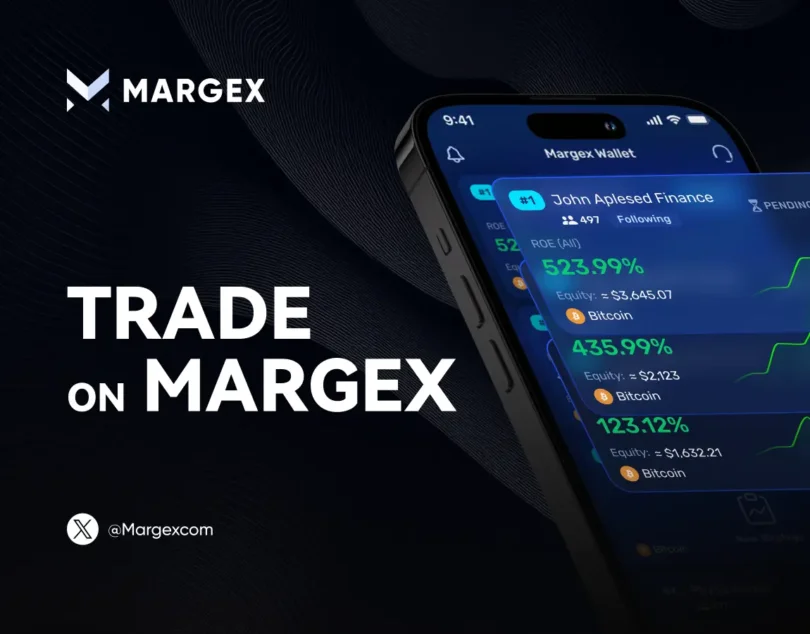Top 5 Use Cases of Cryptocurrencies in 2025

Key Takeaways
- Cryptocurrencies now serve far more than trading — they enable smart contracts, tokenized assets, and global payments.
- Stablecoins and decentralized networks are revolutionizing remittances in emerging economies.
- Smart contract platforms like Ethereum power a growing DeFi and dApp ecosystem.
- Utility tokens allow access to blockchain services and power gaming, cloud, and financial applications.
- Security tokens represent real-world assets and bring liquidity to traditionally illiquid markets.
- Bitcoin and similar coins act as stores of value and hedges against inflation, especially in unstable economies.
Since Bitcoin’s inception in 2009, the word cryptocurrencies has expanded into many mediums. Blockchain has taken a niche experiment and made it into a mainstream technology now organizing many new cryptocurrency use cases far beyond trading. In 2025, the world will be carved out by decentralized finance, smart contract platforms, and the tokenization of assets. As such, different types of crypto came to be and people began using them to solve real-world problems. Such is evolution, Crypto use cases are not restricted to finance and some are even used for game, governance, and service tokens.
Today, cryptocurrency use cases range from global payments, digital contracts, access tokens, asset representation, and even new types of digital stores of value. Blockchain technology eliminates third parties and removes one single point breakdown, thus making faster transactions and higher security. It enables users to easily fund other accounts around the world instantly and interact with smart contract platforms without using traditional banks or credit cards. In countries where currency is likely to lose value or a stable store of value is needed, crypto is a new store of value to preserve wealth. Problems in blockchain protocols have slowly reduced the times and fees of the transaction, which then allows for these applications.
| Use Case | What It Does | Example |
|---|---|---|
| Global Money Transfers | Fast, low-fee cross-border payments without banks |
Stablecoins via PayPal (PYUSD), Ripple (RLUSD) |
| Smart Contract Platforms | Run decentralized apps (dApps) with coded logic |
Ethereum, Solana, Avalanche |
| Utility Tokens | Grant access to features, pay fees, and interact in dApps |
ETH (gas), BAT, GRT, Filecoin |
| Security Tokens | Digitize real-world assets like real estate and equity |
RealT tokenized property, INX securities |
| Store of Value | Preserve wealth and hedge against inflation |
Bitcoin in Argentina, Nigeria, Turkey |
Global Money Transfers
Cryptocurrency use cases that affect how money is sent across the globe. Funds can move between countries instantly without fees and are often cheaper than banks or remittance services on decentralized networks and stablecoins. For instance, stablecoins that are powered and backed by fiat have become part of the payment rails of emerging markets, as in the case of payment companies like PayPal and Ripple adding stablecoin support for remittances: PayPal integrated its PYUSD stablecoin into its Xoom service, while Ripple provided an RLUSD token for payments cross borders. These are innovations that reduce the fees and go around slow legacy systems.
In countries facing economic instability or high inflation, such transfers are especially valuable. A report notes that people in nations like Nigeria, Argentina, and Vietnam have turned to crypto for remittances and inflation protection. By cutting out intermediaries, crypto networks eliminate the need for traditional banking infrastructure and third parties, making transactions faster and more secure. This global payment use case shows how crypto can overcome the limitations of fiat currency across borders, reaching users without access to conventional financial services.
Smart Contract Platforms
The implementation of Ethereum as a smart contract programming platform serves as one of the key applications of blockchain technology. The networks enable developers to construct decentralized applications (dApps) that operate without needing any central authority. Programming agreements into blockchain implementation removes the necessity for banking entities or brokerage services to execute transactions. Through its open-source protocol, Ethereum supports thousands of dApps across finance and gaming sectors that run on the combination of smart contracts and utility tokens. The system operates with full transparency because automated contracts activate themselves according to predefined conditions thus ensuring both trust and preventing any system failure.
By 2024, the popularity of smart contract platforms has driven massive growth in blockchain and crypto activity. Ethereum’s blockchain has processed record transaction volumes and active wallets as more users adopt decentralized finance. In February 2024 alone, Ethereum’s blockchain moved over $114 billion of assets highlighting the mainstream demand for these services. Other smart contract networks (like Solana, Avalanche, etc.) have also emerged, using similar models to power their ecosystems. Overall, this use case shows how blockchain can serve as a digital contract platform, enabling new financial products and services without relying on centralized intermediaries.
| Token Type | Main Purpose | Blockchain Example |
|---|---|---|
| Utility Token | Access, payments, gas fees, staking |
ETH (Ethereum), MATIC (Polygon), GALA (Gaming) |
| Security Token | Ownership of assets, dividends, rights |
RealT, INX, Securitize.io tokens |
| Stablecoin | Maintain fiat parity, reduce volatility |
USDT, USDC, DAI, PYUSD |
| Governance Token | Voting rights in DAOs and protocol upgrades |
UNI (Uniswap), AAVE, COMP |
| Store-of-Value Coin | Long-term value preservation, inflation hedge |
BTC, LTC |
Utility Coins (Tokens) for Payments and Access
Utility coins (tokens) are a prevalent use case for blockchain projects. These specialty coins (tokens) grant holders access to a particular function or service within a blockchain ecosystem. Unlike Bitcoin, which was designed primarily as digital cash, utility coins (tokens) serve specific platform roles. For example, users pay Ethereum gas fees with the network’s token, and some cloud storage networks require their native tokens to rent space. Many developers have launched their utility coins (tokens) to integrate services with the crypto ecosystem. Utility coins (tokens) also power many decentralized apps: holders of a gaming token might buy in-game items or get discounted fees, and holders of a protocol’s token often gain governance rights.
As an example, imagine a decentralized file storage network that requires a token to pay for uploading files. That token is a utility coin (token) — a form of digital access key that users must hold or spend to use the service. Many blockchain platforms run on this model, with a built-in utility token. These tokens can be used to pay for transactions or access premium features, effectively replacing or augmenting a fiat currency. By turning tokens into payment methods or membership passes within a network, utility coins (tokens) streamline how people interact with blockchain services and gaming applications. Overall, there are thousands of utility coins (tokens) across different blockchains, reflecting the broad range of platform-specific digital currencies. These examples highlight how utility tokens power many cryptocurrencies use cases across industries.

Security Tokens
Security tokens are a blockchain-based form of ownership for real-world assets, from equity to real estate. These tokens function like digital securities, carrying rights such as dividends, revenue share, or voting power. They help digitize traditionally illiquid investments. For instance, blockchain can turn a piece of property into digital shares that can be traded globally.
Tokenized real estate platforms allow investors to buy fractions of a building as easily as trading stocks, vastly increasing liquidity and accessibility to asset classes that were once out of reach. Digital record-keeping on the distributed ledger means each security token has an immutable audit trail. Smart contracts can automate compliance, like sending dividend payments or executing trades, without a centralized broker. According to industry data, tokenized assets are expected to grow rapidly, one market report predicts tokenized real estate assets will reach a market cap of $1.4 trillion by 2025.
In practice, companies like RealT and others have already issued security tokens for properties, and platforms are emerging for equity shares, bonds, and more. This is one of the growing cryptocurrency use cases that bring traditional markets onto blockchain.
Store of Value and Inflation Hedge
For many, Bitcoin itself is a modern store of value, similar to digital gold. Bitcoin’s fixed supply and decentralization make it an attractive long-term asset to preserve wealth against inflation. In nations with volatile fiat currency, crypto provides an alternative means of holding value outside the traditional banking system. For example, users in Nigeria and Argentina have turned to crypto for inflation protection and savings.
For example, Bitcoin’s store-of-value role is one of the most prominent cryptocurrency use cases cited by analysts. Since these assets are decentralized and capped in supply, they are considered by some a form of digital money that resists devaluation. Many people use crypto to hedge against local currency devaluation: peer-to-peer Bitcoin trading volumes often spike when currencies crash, highlighting how crypto can act like a haven.
Since the distributed ledger is shared across many nodes, no single authority can arbitrarily devalue these assets. In effect, crypto can act like a digital haven: when a traditional fiat currency loses purchasing power, decentralized cryptocurrencies can help protect personal wealth from erosion.

As we have seen, the cryptocurrency use cases of 2025 are diverse and rapidly evolving. From fast money transfers to smart contract platforms, and utility coins (tokens) to tokenized assets, these use cases are demonstrating applications that were once thought impossible. These developments often occur in open-source, decentralized networks, which remove middlemen and reduce points of failure. Today, these include not only Bitcoin and Ethereum but a vast ecosystem of coins and tokens tailored to different functions.
Overall, blockchain and cryptocurrency technology continue to mature and integrate with everyday finance. Governments and companies are exploring digital currency initiatives, while innovators build new products on smart contract platforms and decentralized ledgers. Chainalysis notes that unique cryptocurrency use cases are taking hold around the world. You can trade on Margex to explore these trends with confidence.
FAQ
What will be the top 5 cryptocurrencies by 2025?
While rankings may shift, likely top 5 by market cap are Bitcoin (BTC), Ethereum (ETH), Binance Coin (BNB), Solana (SOL), and XRP or a leading stablecoin like USDT. On Margex, you can trade the most popular cryptos with up to 100x leverage.
What is the biggest crypto event 2025?
The Bitcoin halving in April 2024 will continue to impact 2025. Other key events include Ethereum upgrades and possible ETF approvals. Margex closely follows such developments, offering traders tools to react fast to market shifts.
What is the most use case of cryptocurrency?
Crypto is mainly used for cross-border payments, DeFi, stablecoins, and Web3 apps. Margex supports these trends by providing a secure platform to trade major assets fueling real-world adoption.
Which crypto will give 1000x in 2025?
No one can predict a guaranteed 1000x coin. Some low-cap altcoins may explode, but they carry high risk. On Margex, you can gain exposure to promising assets while using built-in risk management tools.


